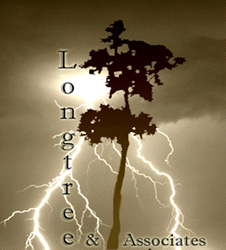Continuing Education Seminars

For over 20 years, Longtree & Associates has been a proven leader in the delivery of topical information to health care providers via our Continuing Education Seminars.
All nurses, social workers, nursing home and assisted living administrators require continuing education units yearly to maintain their license or certification. To add value to your company’s relationship with these key decision influencers and others, including family members, physicians, and counselors, consider engaging one of our CE-approved seminars for your marketing outreach activities.
All of Longtree & Associates’ CE seminars are National Administrator Board (NAB) approved, and therefore recognized in all states. Additional state-specific Board of Social Work and Board of Nursing approvals are attached to a variety of our seminars. CE seminars, held at your location, generate interest and traffic to your facility or community, and prove to be worthwhile investments in promoting visibility and awareness of your services.
See below for a partial list of our current seminars ready for presentation at your location (in-person or virtual). Most of these programs are approved for Social Workers, Nursing Home Administrators, Assisted Living Administrators, and Nurses. Please reach out to us to find out specifics.
Unless noted otherwise, all seminars are approved for up to 3.0 CEs.
Hot Topics for 2024!
SW, LNHA, CALA, and other health care professionals are called upon to serve an ever-increasing volume of patients presenting with some form of dementia, whether due to impairments such as Alzheimer’s Disease, or due to brain injury. This course reviews some of the latest memory care information and how we implement this knowledge into actual best practices with other front-line professionals, thereby enhancing the quality of life of dementia patients and their families.
This course is based on social work standards and will equip eldercare professionals in gaining a basic understanding of core principles related to ethical decision-making. This course provides an introspective look at the fundamental questions of what we should do, what we could do and what we must do to render ethical, appropriate decisions.
This seminar provides case managers, SW, RN, and other professionals opportunities to explore the different diagnoses and treatment modalities for mental health in older adults. This presentation highlights the need to understand the complexity of the aging process that may impact the elder’s mental health. Attendees will gain knowledge and skills for working within complex family dynamics and aging parents.
Some of our outstanding seminars (in-person or virtual)
Every 67 seconds someone in the United States develops Alzheimer’s Disease or a related form of dementia. This course serves as a platform for social workers and other professionals to gain a deeper understanding of various aspects of the disease, including diagnosis, treatment, emotional and behavioral management, and caregiver support. This course, developed and approved by the National Council of Certified Dementia Practitioners, is a prerequisite toward becoming a Certified Dementia Practitioner.
SW, LNHA, CALA, and other health care professionals are called upon to serve an ever-increasing volume of patients presenting with some form of dementia, whether due to impairments such as Alzheimer’s Disease, or due to brain injury. This course reviews some of the latest memory care information and how we implement this knowledge into actual best practices with other front-line professionals, thereby enhancing the quality of life of dementia patients and their families.
This course is based on social work standards and will equip eldercare professionals in gaining a basic understanding of core principles related to ethical decision-making. This course provides an introspective look at the fundamental questions of what we should do, what we could do and what we must do to render ethical, appropriate decisions.
This seminar provides case managers, SW, RN, and other professionals opportunities to explore the different diagnoses and treatment modalities for mental health in older adults. This presentation highlights the need to understand the complexity of the aging process that may impact the elder’s mental health. Attendees will gain knowledge and skills for working within complex family dynamics and aging parents.
Effective communication positively affects many aspects of the system and its stakeholders. It allows patients to feel respected and safe to openly communicate their beliefs, fears, and questions in order to receive effective treatment especially at the end of life. This course will examine how advance care planning is the first line of communication between all stakeholders and barriers to effective communication in healthcare settings, how to maximize limited time to build trust and relationships with all stakeholders, and how to use effective communication techniques so that optimum care is provided at the end of life. Attendees will assess their individual and organizational communication styles/beliefs/biases in an effort to enhance and increase their community approval ratings. Various communication techniques and the role of end of life doulas will be shared as resources to bridge limited time restraints in healthcare settings between stakeholders so that communication efforts and optimum care are maximized.
This seminar explores areas of therapeutic resistance by elderly clients. Social workers, CCM, LNHA, CALA, RN and other professionals will learn ways to analyze resistance, learn techniques in responding to challenges from clients, and how to formulate clinically sound approaches to foster self-care and self-advocacy.
Healthcare professionals are called upon to serve an ever-increasing volume of patients over the age of 65 who may have been discriminated against due to ageism. This seminar provides a detailed synopsis of the World Health Organization’s 2021 Global Report on Ageism, which will assist in elevating the level of competency, awareness and sensitivity to ageism-related issues in healthcare. Topics covered include the scale of ageism, the nature of ageism, the impact of ageism, the determinants of ageism and the three strategies to reduce ageism as outlined in the WHO report.
To teach SW, RN, CALA, LNHA and other professionals to utilize a cultural competence model without simultaneously incorporating a cultural humility approach fall short of both in real practice. To address these risks, this seminar will explore the concept of cultural humility, that is, an orientation to care that is based on self-reflexivity, appreciation of patients’ lay expertise, openness to encouraging person-centered and self-determination with patients, and to continue learning from one’s patients. We also briefly discuss our own cultural humility training.
Healthcare professionals are expected to provide culturally inclusive care for the lesbian, gay, bisexual, transgender, queer, or questioning (LGBTQ+) community. This course examines LGBTQ+ terminology and healthcare disparities in the LGBTQ+ community, presents The NJ SENATE Bill 2545 as a national model of establishing certain requirements concerning LGBTQ+ community residents of long-term care facilities. Attendees will assess their individual and organizational understandings/beliefs/biases of the LGBTQ+ community as it relates to healthcare needs, especially at the end of life and create an action plan to take back to their healthcare organizations.
Effective communication positively affects many aspects of the system and its stakeholders. It allows patients to feel respected and safe to openly communicate their beliefs, fears, and questions in order to receive effective treatment especially at the end of life. This course will examine how advance care planning is the first line of communication between all stakeholders and barriers to effective communication in healthcare settings, how to maximize limited time to build trust and relationships with all stakeholders, and how to use effective communication techniques so that optimum care is provided at the end of life. Attendees will assess their individual and organizational communication styles/beliefs/biases in efforts to enhance and increase their community approval ratings. Various communication techniques and the role of end of life doulas will be shared as resources to bridge limited time restraints in healthcare settings between stakeholders so that communication efforts and optimum care are maximized
This course teaches the basics of psychotherapy through telehealth. It covers the differences and benefits of psychotherapy through telehealth at this time and addresses situations where in person psychotherapy might be more effective. HIPAA compliance, recordkeeping and therapeutic enhancements through online psychotherapy are also covered.
The purpose of this course is to discuss and introduce the basic tenets of pain management strategies for the elderly. This course will delve into the core of care planning for pain by social workers as an interdisciplinary team member.
